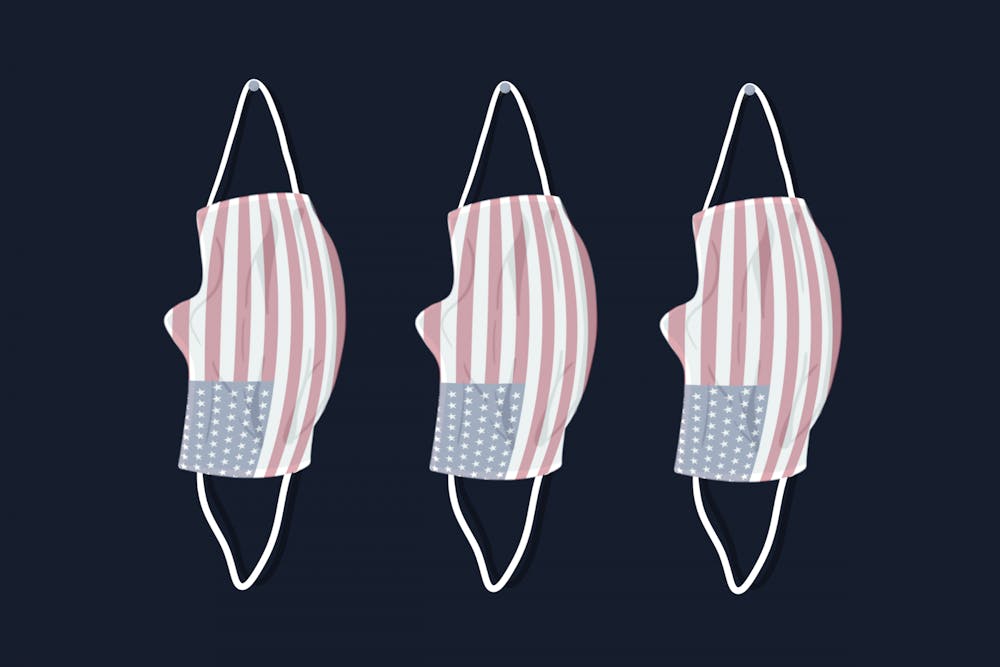Instead of agonizing over the legality of mask mandates or quarantine measures, perhaps worry about the well-being of your fellow man first.
There is an argument to be made for how the Constitution can limit measures being taken to fight against COVID-19, but it can wait until thousands of people aren’t dying. For months, there have been debates about the legality of COVID-19 measures in the United States, whether online, on cable news, within families or anywhere in between. Most that oppose measures mandating mask-wearing, limited capacities in businesses or lockdown orders center their argument around the limits the Constitution imposes on the government and their personal liberties. Or at least, it’s the talking point that is the least inaccurate compared to saying masks are bad for your health or that the coronavirus isn’t that bad.
While there is some merit to be had with this opinion, at least in a hypothetical, legal sense, it is often hijacked by those who see their own sense of self-worth and comfort as more important than the health of others.
This is simply an exercise in debating, and nothing more. In fact, the debate around “constitutionality” or “legality” has been going on for months and, for the most part, has largely been put to rest by scholars whose job it is to know the Constitution. Most state stay-at-home orders and mask requirements have been upheld when challenged in state courts. Plus, even without the presence of stay-at-home orders, courts wanted the legislature to decide on regulations rather than the governor and for churches to not be specifically targeted by occupancy limits.
This is all mostly due to Jacobson v. Massachusetts, a 1905 Supreme Court case that allowed the state to mandate that its citizens receive the then-new smallpox vaccine. It demonstrated that the right of individual liberty is not absolute when the public health is at stake and that the government can take reasonable measures to protect the public health. Were people unhappy with that court ruling? Probably. Did they say it was a ploy by the government to strip away rights? Maybe they did. The more things change, the more things stay the same.
Between mid-1941 and 1945, citizens living on the East Coast were forced to go through blackout drills, as examples of what to do during air raids and U-boat sightings. A totally dark landscape made it difficult for planes to find targets and for submarines to find the shadows of boats against otherwise lit buildings. This is an example of Americans coming together to deal with a minor inconvenience in order to help the greater good and their country as a whole.
While this worked well for Europe, the FDR administration refused to order a nationwide blackout for fear of interrupting commerce, and Americans resisted state-mandated blackouts, citing drops in tourism. Six hundred and nine dboats were sunk, and almost 5,000 people were killed. Because Americans refused to do a simple but bothersome action, the Germans got their first real success against us in World War II. Because Americans acted selfishly, they shot themselves in the foot.
Does that last bit sound familiar?
Perhaps there is a legal debate to be had about stay-at-home orders, mask requirements and whatever else you have to deal with in regard to the coronavirus, but much of it has been settled in court either recently or 100 years ago. Most importantly, are there not better things to do?
Thousands of people are dying each week in the United States, and many of those who live suffer long-term health consequences such as lung, heart and kidney damage. The main question right this minute should be how to stop the virus and save lives, not the legal standing of every single sentence of every single mandate by every single governor.
If this is not acceptable, consider joining a debate club.

